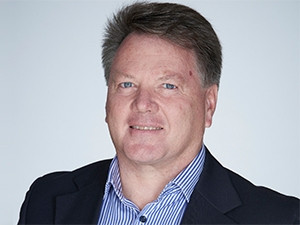
The Internet of things (IOT) will reach mainstream adoption in the next two to five years in Africa and is expected to have the most transformational impact on local businesses in the same period.
This is according to Gartner's 2016 Hype Cycle for information and communications technology (ICT) in Africa.
"The level of interest in, and the pace of adoption of, ICT in Africa are increasing, and, although Africa's insurance sector is small, it's a key indicator of where IOT opportunities exist and will prove long-lasting," says William Hahn, principal analyst at Gartner.
"A growing number of insurers are seriously evaluating how the IOT might best be used, especially in terms of improving the customer experience."
The primary usage for the IOT in Africa's insurance sector, initially, will be a "charging" scenario, in which connected "things" are monetised. "For example, drivers will be charged premiums based not only on how far they drive, but also on how safely they drive and the degree of risk associated with when and where they drive," says Hahn.
Gartner says although challenges to widespread IOT adoption remain - a lack of access to end-user devices and policyholders' concerns about data privacy, for example - in the long-term IOT data, combined with advanced analytics, will give insurers much greater insight into the risks their policyholders face.
"This will present insurers in Africa with opportunities to prevent losses before they occur, and prompt them to act to prevent risk, which could increase customer engagement and loyalty, and thereby reduce churn," Hahn adds.
In its recent Mobile Visual Networking Index, Cisco says the IOT is continuing to drive IP traffic and tangible growth in the African market.

The networking company says applications such as video surveillance, smart meters, digital health monitors and a host of other machine-to-machine (M2M) services are creating new network requirements and incremental traffic increases.
Globally, Cisco says M2M connections are calculated to grow nearly three-fold from 4.9 billion in 2015 to 12.2 billion by 2020, representing nearly half (46%) of total connected devices. Within Africa, M2M modules will account for 22% of all networked devices by 2020.
Global management consultancy McKinsey estimates Africa is set to triple its Internet penetration to more than 50% - the equivalent of 600 million regular Internet users - by 2025. It says the potential of the IOT in developing countries is huge, with such nations to be accountable for 40% of the worldwide value of the IOT market by 2020.

Mark Warren, M2M solutions manager at Gemalto SA, says South Africa is seeing growth in IOT adoption. This is being enabled by a number of complementary drivers, including investment in digital infrastructure by mobile network operators, with high-speed networks as well as investment in broadband Internet and cloud storage centres by the ICT industry.
"South Africa traditionally has more developed ICT infrastructure than other countries in Africa and a larger penetration of smartphones than the rest of Africa," says Warren. "This has given us a clear ICT advantage which is currently visible in the size of our IOT-related ecosystem."
However, he notes SA is not uniquely positioned and there are many other African countries that have recognised the need to build IOT infrastructure to drive GDP growth and improve the lives of their citizens.
"Rwanda is a good example of this. Rwanda has started creating a central platform that many different services will be able to plug into, like transport, education, healthcare, etc. This platform will enable the exchange of data between citizens and government, enabling the provision of efficient end-to-end solutions."
Share